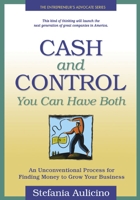When you started your business, it was a twinkle in your eye. You could see the future but no one else could. Then you developed your product or service, got a few clients and you were in business.
However, because of your ambition, for a long time your business will be smaller than you intend to be.
How you label your company during this formative time will dictate your future because the choices of words we use are always important: that is the power of language.
Language is how we communicate our meaning to others. And language is a reflection of what others understand from us. Think of it in this simple example. As a native English speaker, you are asking for directions to the train station in China, but you are speaking to a person who studied English in school. The words used may not be received as you intend them.
Now think of a situation more close to home: How often have you described your company with terms like start up, early stage, small, emerging or the like. Did you ever stop to think what that language connotes to the listener? Unproven, risky, unsustainable, fragile, not trustworthy.
This language is also very imprecise. I’ve often heard companies with $25million in revenue use the same small business label as a company with $100,000 in sales.
Your choice of language is very powerful. Is language, in part, holding you back from the success you deserve with customers and investor?
What prevents you from speaking of the business you intend to be: innovator of x, or leader in the yxz niche- you get to define it, or specialist in xxx- you get to declare it..
Can you begin to hear the difference.? There is power in language and language can influence how customers and investors perceive the safety or risk in dealing with you.
How many customers want to be on the “bleeding edge” buying from a start up, an emerging or early stage company? Alternatively, how many more customers would be drawn to investigate a purchase from “the specialist in…”, or “the leader in..”? Perhaps even pay a premium for the early opportunity to buy! Simple shift in language can mean the difference in getting a customer to pay for a prototype or first production run vs having to give up equity to an investor for the same dollars.
And when you use language powerfully, you will make your company more attractive when investor capital is appropriate.
Language is your most powerful tool. It’s how you describe your vision and passion to make it real.
There is currency in your passion, all it takes is careful use of language to access it with those who want to buy.
Learn the proper use of entrepreneur-ese to make your future tangible enough for customers and investors to buy today.
Stefania Aulicino is founder president of CapitalLInkUSA. For 20 years Stefania has helped business builders uncover the right capital for their optimum growth strategy so you get cash and keep control to build the business you really want. www.CapitalLinkUSA.com


Comments